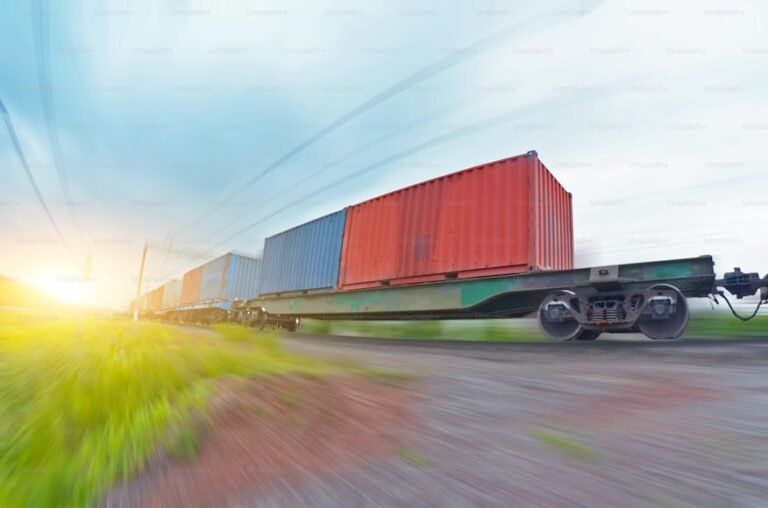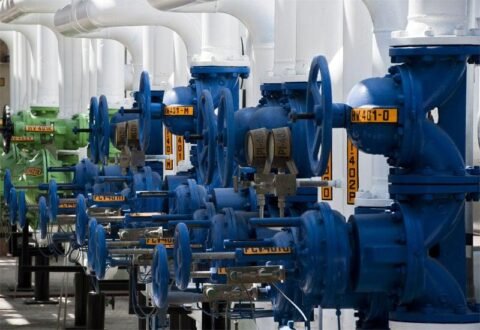Table of Contents
- What Is LTL Freight Shipping?
- Current Trends in LTL Freight Shipping
- Technology Advancements
- Sustainability in Freight Shipping
- The Role of Data Analytics
- How to Choose an LTL Freight Provider
- Future Outlook
What Is LTL Freight Shipping?
LTL (Less-Than-Truckload) freight shipping refers to the transportation of freight that does not require an entire truck. This method optimizes space and costs by consolidating multiple shipments from different customers into one truck. For businesses involved in LTL shipping in Canada, this method can be highly efficient and cost-effective. Understanding the basics of LTL freight shipping is essential for businesses looking for streamlined logistics solutions.
Freight shipping can be complex, but LTL shipping offers a viable alternative to total truckload shipping. With LTL shipping, goods are combined with other shipments, each taking up only part of the truck’s space. This consolidation minimizes costs and maximizes efficiency, making it an attractive option for companies who need to move products without filling an entire truck. Moreover, LTL shipping offers more flexibility with pickup and delivery times, making it a preferred choice for many businesses and small to medium-sized enterprises.
Current Trends in LTL Freight Shipping
The LTL freight shipping industry has seen numerous trends emerge over recent years. These trends stem from market demands, technological advancements, and shifting customer expectations. Notable trends include the rise of e-commerce, increased focus on sustainability, and improvements in logistics technology. Freight News has highlighted how these trends are shaping the future of the industry.
One significant trend is the surge in e-commerce, which has led to an increase in smaller, more frequent shipments. Consumers expect faster delivery times, and businesses are adapting by optimizing their logistics to meet these demands. Another trend is the shift towards greener logistics practices. Companies are investing heavily in sustainability initiatives to reduce their carbon footprints. Additionally, technological advancements such as Internet of Things (IoT) devices and predictive analytics are becoming commonplace, providing a competitive edge to those who leverage these tools effectively.
Technology Advancements
Technology plays a crucial role in LTL freight shipping. Innovations such as real-time tracking, automated logistics management, and advanced data analytics have revolutionized the way freight is managed and transported. These advancements not only improve efficiency but also enhance transparency and reliability for shippers and recipients.
For instance, real-time tracking allows customers to monitor their shipments every step of the way. This visibility helps build trust and ensures timely delivery. Automated logistics management streamlines operations, reducing human errors and speeding up processes. Advanced data analytics provides insights that help optimize routes and improve overall service delivery. Moreover, freight companies are utilizing blockchain technology to enhance security and transparency in transaction records. This step ensures data integrity and increases trust among all parties involved in the shipping process.
Sustainability in Freight Shipping
The freight transportation sector now prioritizes sustainability. Many businesses are implementing environmentally friendly procedures, such as buying electric or hybrid trucks and planning routes that use less gasoline. These initiatives benefit the environment and appeal to customers who care about the environment. Recent articles on green business practices show that sustainability is more than just a trend; it’s a crucial aspect of modern logistics.
Reducing the carbon footprint involves implementing measures like load optimization, using renewable energy sources, and employing energy-efficient vehicles. By taking a proactive approach to sustainability, freight companies not only contribute to environmental conservation but also enhance their brand image and customer loyalty. Moreover, incorporating renewable energy sources in warehouse operations and implementing recycling programs adds another layer of sustainability. These practices lower operational costs in the long run and contribute to a healthier planet.
The Role of Data Analytics
Data analytics has transformed the freight shipping industry by providing insights into shipping patterns, optimizing routes, and predicting future trends. Companies that leverage data analytics can make informed decisions, improve efficiency, and enhance customer satisfaction. Understanding how to utilize this data effectively is critical to staying competitive in the LTL freight market.
With data-driven decision-making, companies can forecast demand, manage inventory more effectively, and reduce operational costs. Predictive analytics can also identify potential disruptions, allowing companies to mitigate risks and maintain service reliability proactively. By employing machine learning algorithms, freight companies can continually refine their operation models, resulting in better performance and higher customer satisfaction rates. This intelligent application of data analytics not only enhances operational efficiency but also builds a foundation for sustained growth.
How to Choose an LTL Freight Provider
Choosing the right LTL freight provider is critical for businesses. Factors to consider include the provider’s reputation, cost, range of services, and technological capabilities. It’s also important to look at their sustainability practices and how they handle disputes or issues that may arise during shipping.
Begin by researching and comparing providers, checking customer reviews, and requesting quotes. Evaluate their technology offerings, such as tracking systems, and assess their ability to handle your specific shipping needs. It’s also advisable to work with a provider that demonstrates a solid commitment to sustainability and customer service excellence. Another critical aspect is the provider’s customer service. Ensure they offer support for resolving issues promptly and have a straightforward process for claims and compensations. Building a long-term relationship with a reliable LTL freight provider can significantly enhance your supply chain efficiency and customer satisfaction.
Future Outlook
The future of LTL freight shipping looks promising, with ongoing innovations and an increasing focus on efficiency and sustainability. As technology continues to evolve, the industry is expected to become even more streamlined, reliable, and environmentally friendly. Staying informed about industry trends and advancements will be essential for businesses to thrive in this dynamic field.
As the industry adapts to new challenges and opportunities, businesses that embrace modern technologies, prioritize sustainability and strive for operational excellence will be well-positioned for success. In a rapidly changing world, the ability to remain flexible and forward-thinking is critical to navigating the future of LTL freight shipping. Companies that invest in employee training and development are likely to stay ahead by leveraging the latest technologies and best practices. This adaptability ensures they can respond to market changes swiftly and effectively, securing a competitive edge in the marketplace.





